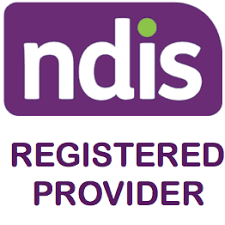Apps
Definition of Depression
The Diagnostic and Statistical Manual of Mental Disorders 5th edition (DSM-V) (American Psychiatric Association, 2013), is a handbook that is used by professionals around the world to diagnose mental disorders.
The DSM–5 describes depressive disorders as the presence of a mood in which a person has feelings of sadness, emptiness or irritability. This mood is accompanied by somatic and cognitive changes that significantly affects the individual's capacity to function (American Psychiatric Association, 2013).
Causes of Depression
There is no single cause, rather a number of risk factors that contribute to its development. Some of the factors include:
- Hereditary inherited genes make the individual vulnerable to developing depressive disorder.
- Brain chemistry (i.e. imbalance in chemicals in the brain that regulate emotions).
- Brain structure and function differences.
- Medical conditions (e.g. diabetes, chronic pain, stroke, cancer, multiple sclerosis, Parkinson’s disease and heart attack).
- Stressful events such as loss (e.g. death of a loved one or a pet, parents’ divorce or conflict in the family), major life change (e.g. change of school, moving to a different school, moving to a new country) and leading a high stress lifestyle (e.g. individual is doing too many extracurricular activities).
Types of Depression
Based on specific symptoms, DSM-V classifies depression as:
- Disruptive mood dysregulation disorder.
- Major depressive disorder.
- Persistent depressive disorder (dysthymia).
- Premenstrual dysphoric disorder.
- Substance/medication induced depressive disorder.
- Depressive disorder due to another medical condition.
- Other specified depressive disorder.
- Other unspecified depressive disorder.
- Drug and alcohol abuse.
Symptoms of Depression
DSM-V (American Psychiatric Association, 2013) has summarized the symptoms to make the diagnosis of depression. The person must experience five or more symptoms during a two week period, and one of the symptoms should be either depressed mood or loss of interest. Additionally, the individual will present with:
- Depressed mood for most of the day, nearly every day.
- Loss of interest in all, or almost all activities most of the day, nearly every day.
- Marked weight loss or weight gain or loss or increase in appetite nearly every day.
- Slowing down of thought processes and physical movement as observed by others.
- Lethargy and loss of energy, nearly every day.
- Feelings of being worthless and excessive guilt, nearly every day.
- Reduced ability to concentrate and difficulty to make decisions, nearly every day.
- Recurrently thoughts of death and suicidal ideation without a specific plan or attempt.
References
Behaviour Help
If you are supporting an individual with this diagnosis, please refer to our services and resources. They aim to help children, adolescents and adults achieve better communication, social, emotional, behavioural and learning outcomes. So whether you are wanting guidance on parenting, teaching, supporting or providing therapy, Behaviour Help is at hand.
Note: This is not an exhaustive list of all the possible causes, symptoms and types but some general information that can be further explored. Based on what you have read if you have any concerns about an individual, please raise them with the individual/s. The caregiver can then raise these concerns with their local doctor who can provide a referral to the relevant professional (e.g. paediatrician, psychologist, psychiatrist, allied health professional and learning specialists) for diagnosis and treatment if appropriate.
Get Started with Behaviour Help App
Assess-manage-prevent behaviours of concern efficiently and effectively with the Behaviour Help App.



